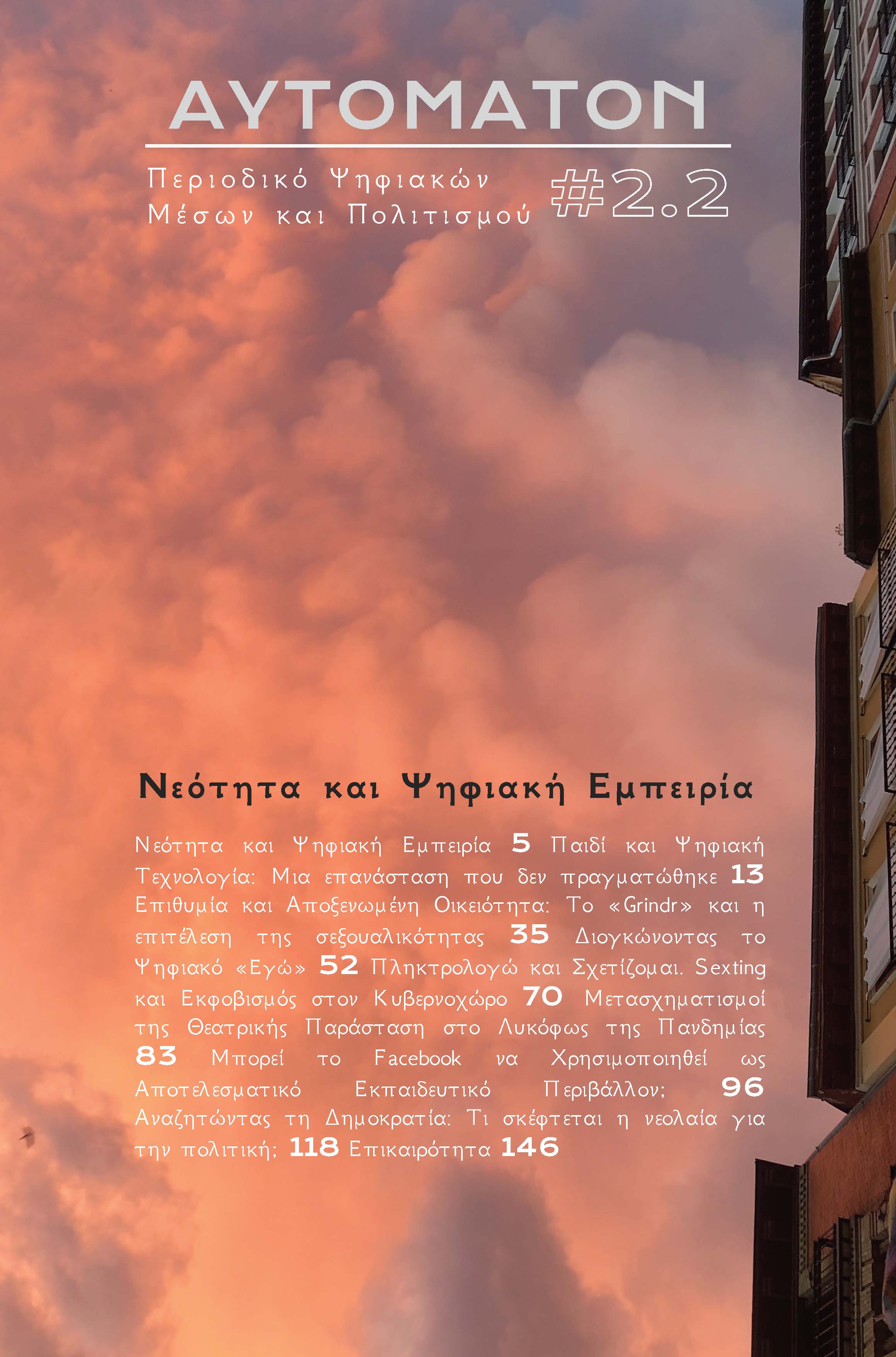Τheatre Performance Transformations in the Twilight of the Pandemic video theatre and prosumer culture – and after?

Abstract
The Covid-19 pandemic pushed theatre to its limits and gave birth to certain creative solutions out of social confinement. It led to its medial transformation into video theatre and video drama. As such, it could enjoy a new status as another «window» on a screen, among advertisements, news and miscellaneous content. Another solution that emerged during the pandemic that resonates with, mostly youth, prosumer culture, was rehearsing in open spaces. The article examines these two major solutions devised during the pandemic and their very special impact on the body of live theatre performance, as well as their possible long-term consequences. It aspires at reformulating the ontology of theatre performance after the pandemic, in relation to the moving image, narrative and participatory culture.
Article Details
- How to Cite
-
Timplalexi, E. (2023). Τheatre Performance Transformations in the Twilight of the Pandemic: video theatre and prosumer culture – and after?. Αutomaton: Journal of Digital Media and Culture, 2(2), 83–95. https://doi.org/10.12681/automaton.35477
- Section
- Articles

This work is licensed under a Creative Commons Attribution 4.0 International License.
Authors wishing to publish articles in this journal agree to the following terms:
1. The Authors retain the Copyright and grant the journal the right of first publication while at the same time the copyright of the work is protected under the Creative Commons Attribution License which allows third party licensees to use the work as they wish provided they acknowledge the work's authorship and initial publication in this journal.
2. Authors may enter into separate additional contractual arrangements for the non-exclusive distribution of the published journal version of the work (for example, posting it to an institutional repository or publishing it in a book), with acknowledgment of its initial publication in this journal.
3. Authors are allowed and encouraged to post their work online before and during the submission process (e.g. on their website) as this can lead to productive exchanges as well as earlier and more citations of published work (See The Effect of Open Access).


